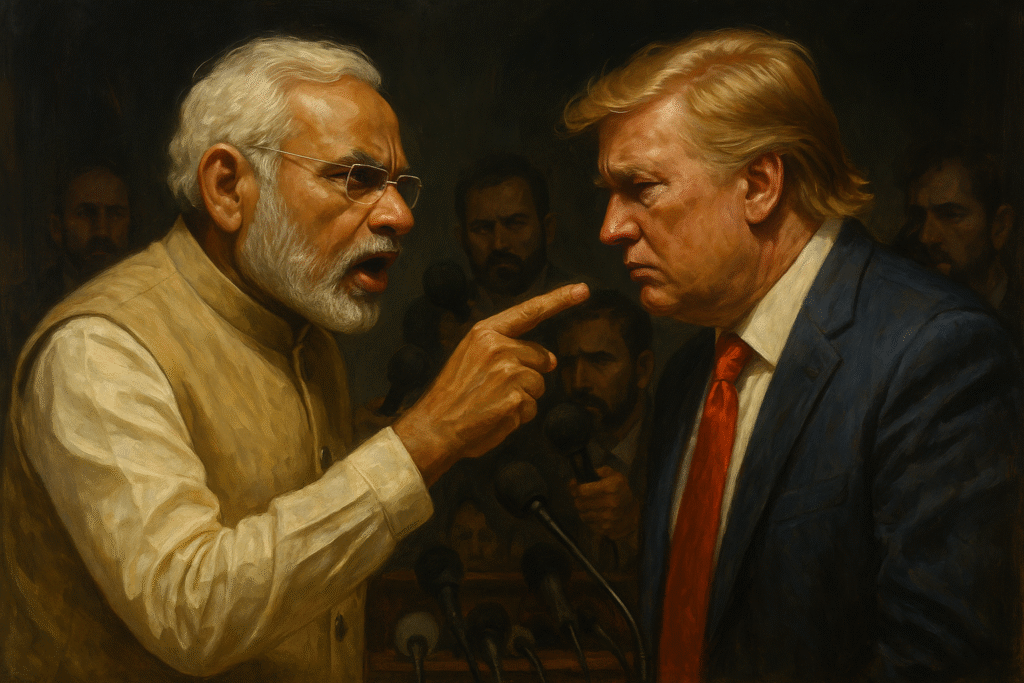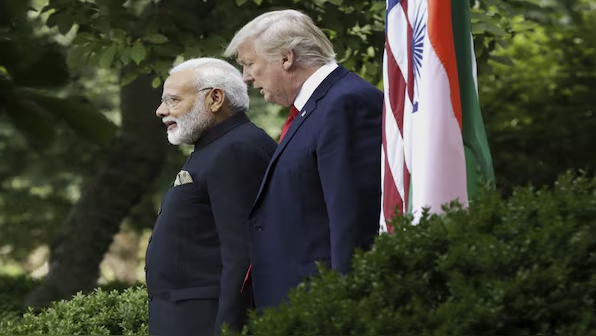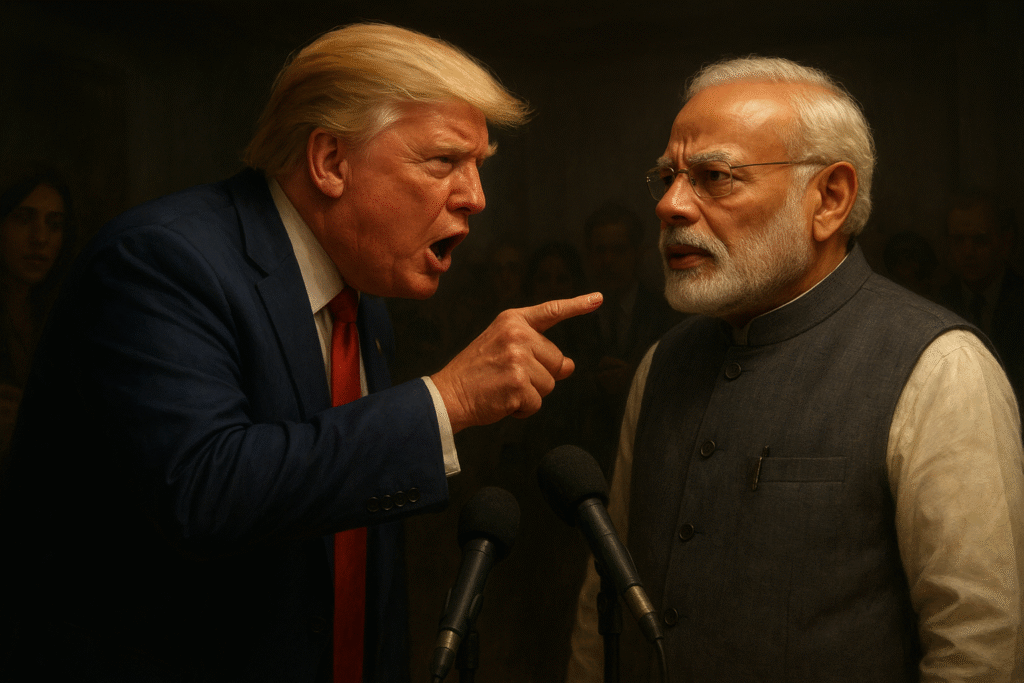
Table of Contents
- Introduction: Trump Tariffs India Controversy
- Why American Brands Matter in India
- The Trigger: 50% Tariff on Indian Goods
- Reason 1: National Pride and Self-Reliance
- Reason 2: Farmers and Startups Seeking Support
- Reason 3: Push for Indian Tech Alternatives
- Reason 4: Political Messaging and Public Rallies
- Reason 5: Swadeshi Movement Revival
- Reason 6: Consumer Choices and Value Perception
- Reason 7: Symbolism in Global Trade
- Impact on US-India Trade Relations
- Conclusion
- Check More Tech News
Introduction: Trump Tariffs India Controversy
The Trump tariffs India trade dispute has sparked a heated wave of calls to boycott American goods. From McDonald’s and Coca-Cola to Amazon and Apple, U.S. companies are now at the center of a public backlash. This reaction is being fueled by nationalist rhetoric, political activism, and a renewed push to buy local. For many Indians, the tariffs are more than an economic issue—they represent an opportunity to assert self-reliance and reduce dependence on foreign brands.
Why American Brands Matter in India

India, now the world’s most populous country, has become a key market for American corporations.
- WhatsApp (owned by Meta) is India’s largest messaging platform.
- Domino’s Pizza operates more outlets in India than anywhere else globally.
- Pepsi and Coca-Cola dominate beverage shelves.
- Apple stores regularly attract long queues during product launches.
These brands are deeply integrated into daily life, making the boycott movement a significant cultural and economic shift.
The Trigger: 50% Tariff on Indian Goods

The turning point came when former U.S. President Donald Trump imposed a 50% tariff on goods from India. This move rattled exporters, strained diplomatic relations, and fueled resentment among Indian consumers and businesses.
Reason 1: National Pride and Self-Reliance
Prime Minister Modi’s Atmanirbhar Bharat (Self-Reliant India) campaign has been a recurring theme in political speeches. In Bengaluru, he recently urged Indian companies to prioritize domestic needs before serving global markets.
Reason 2: Farmers and Startups Seeking Support
Indian entrepreneurs like Manish Chowdhary of Wow Skin Science have used platforms like LinkedIn to encourage consumers to back homegrown products. Chowdhary likened the vision to South Korea’s global success in food and beauty exports.
Reason 3: Push for Indian Tech Alternatives
Industry leaders like Rahm Shastry of DriveU have called for Indian-made versions of Twitter, Google, YouTube, WhatsApp, and Facebook—similar to China’s self-sufficient tech ecosystem.
Reason 4: Political Messaging and Public Rallies
The Trump tariffs India issue has become a political rallying cry. Groups linked to the BJP, such as the Swadeshi Jagran Manch, have organized rallies urging people to reject American products in favor of Indian alternatives.
Reason 5: Swadeshi Movement Revival
Swadeshi Jagran Manch has circulated WhatsApp lists of Indian brands that could replace foreign ones, from bath soaps to cold drinks. Their campaign graphics often target global fast-food chains like McDonald’s.
Reason 6: Consumer Choices and Value Perception
Not everyone is swayed by the boycott calls. In Lucknow, Rajat Gupta, 37, enjoyed his ₹49 McDonald’s coffee, noting that tariffs are “a matter of diplomacy” and should not affect everyday consumer choices.
Reason 7: Symbolism in Global Trade
The boycott is not merely about buying habits—it’s symbolic of how trade tensions can influence national identity and public sentiment.
Impact on US-India Trade Relations
Trade experts warn that a sustained boycott could harm both economies. The U.S. remains one of India’s top trading partners, and cutting ties abruptly could disrupt supply chains and market access.
Conclusion
The Trump tariffs India debate has exposed how trade policies can ripple into public opinion, corporate strategy, and even cultural identity. Whether these boycott calls will translate into lasting change depends on how both nations navigate their economic diplomacy in the coming months.


